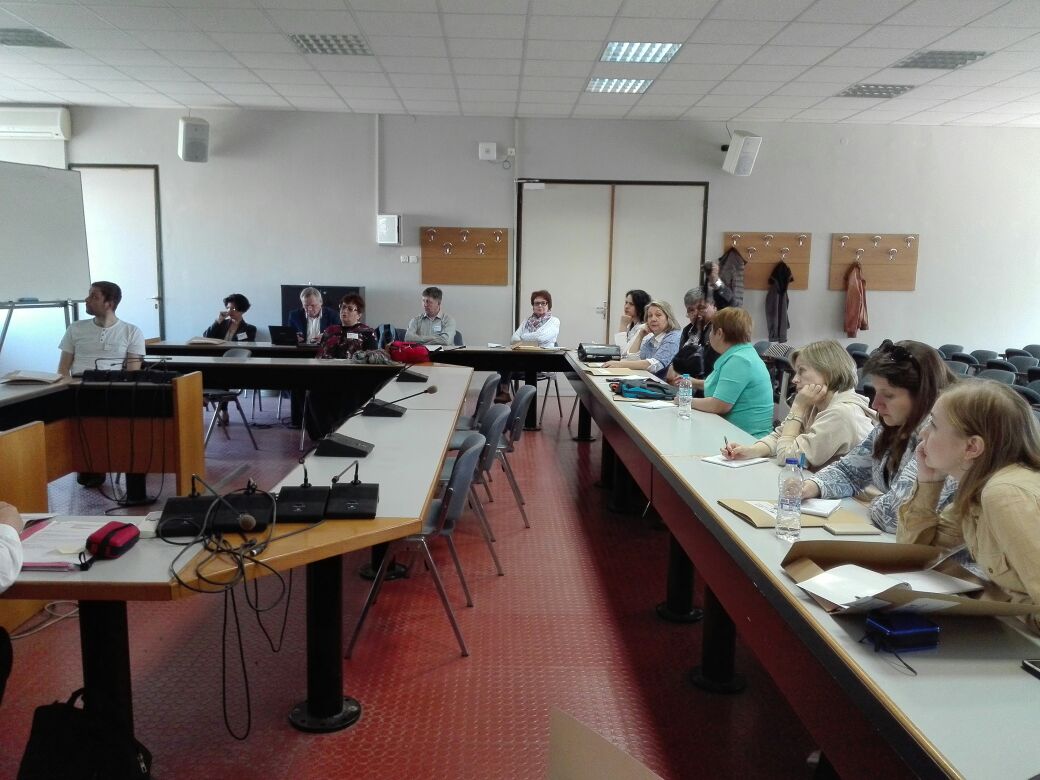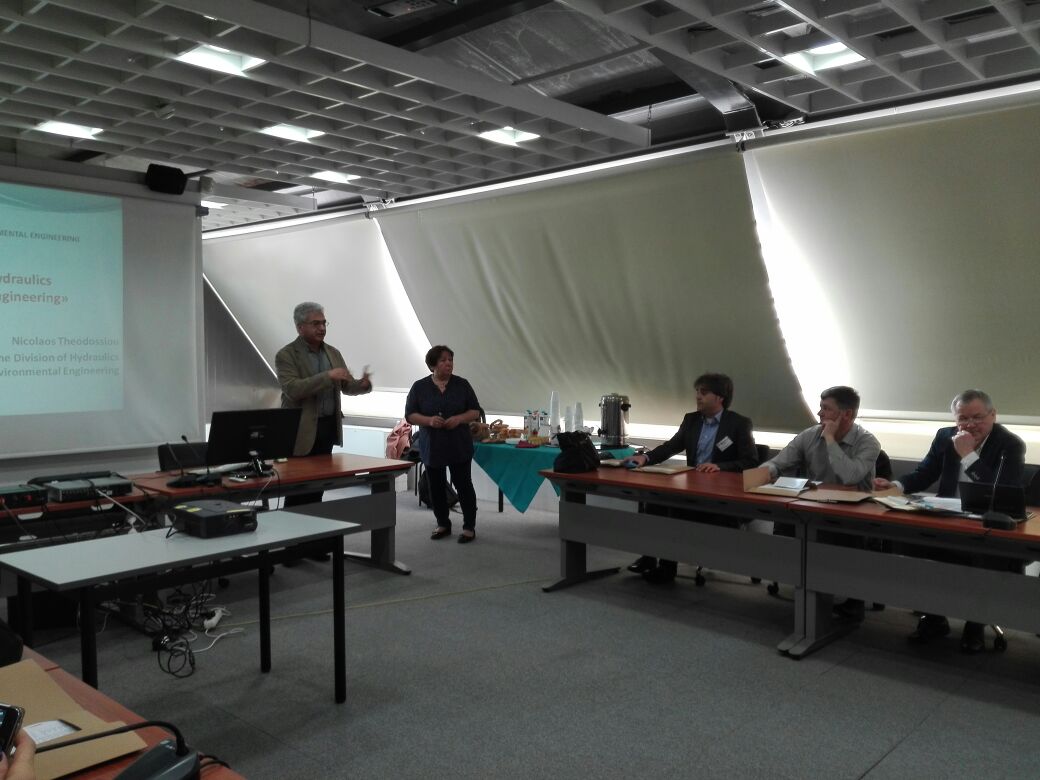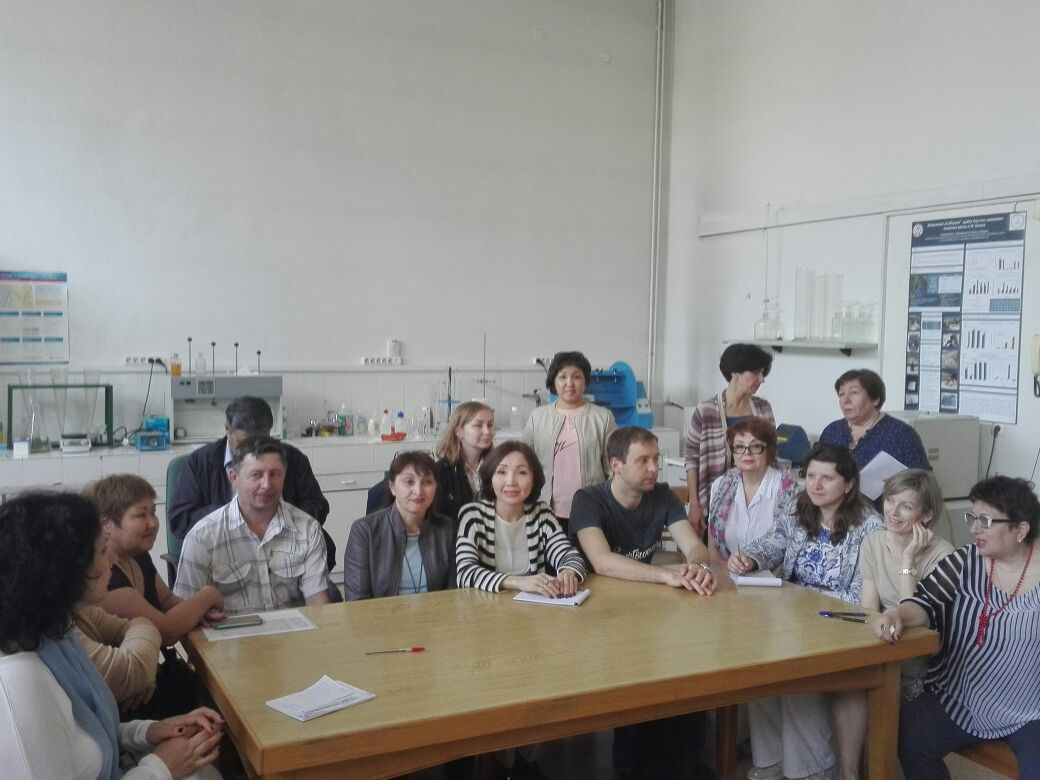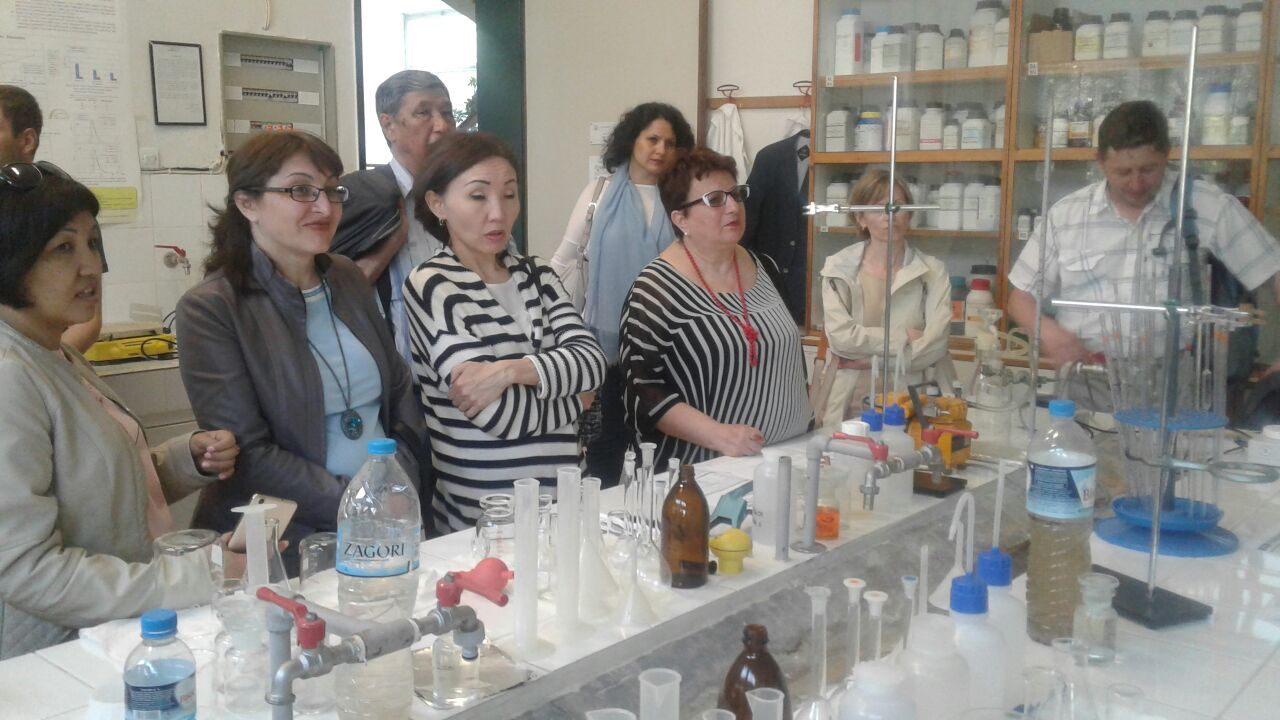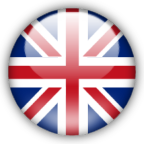MEETING MINUTES
PC-EU TRAINING COURSE ON
Project Erasmus+ № 561775-EPP-1-2015-1-DE-EPPKA2-CBHE-JP
Trans-Regional Environmental Awareness for Sustainable Usage of Water Resources
(TREASURE-WATER),
Thessaloniki, Greece, 24th April – 5th May 2017
Organiser: Aristotle University of Thessaloniki (AUTH)
Venue: School of Civil Engineering, UNESCO Chair on “Sustainable Management of Water and Conflict Resolution”, Hydraulics Building
1. Description of the objectives of the course
The 2 weeks training course fr om the 24th of April to 5th of May 2017 that was held in the Aristotle University of Thessaloniki, Greece, forms part of the scheduled activities that are included in WP3 “Industry-Academia Teaching Task Force’ (IATTF) created”. The aim of the 2 weeks training course was in line with the aim of the WP3, and particular the course focused on the enhancement of the teaching and knowledge potential of the PC HEIs in TWRM by creating an ‘Industry-Academia Task Force’(IATF) and modernization of teaching resources.
An overall discussion about the IATF role was conducted during the training course and a preliminary road map of the IATF concept and activities was also one of the working issues during the meeting. The outputs could be comprised that IATF should have an extended role to the IALPs, by bringing together academic and industry staff for teaching/learning purposes. For that purpose, it is required professional development of courses from PC universities including the IWGs, the IT staff, QA personnel, that are directly involved in the university academic activities and a few staff from industry.
Other main thematics of the training course are the following:
1. Demonstration of innovative methodologies and practices that are used in the EU in the field of TWRM,
2. the EU environmental legislation,
3. Interactions between private sector and Academia
4. TWRM practices and methodologies that are proposed by International Organisations, such as UNESCO-IHP.
As the given presentations by the AUTh is concerned, the following presentations aimed at the aforementioned thematic 1:
· “EU WFD and GIS, databases”,
· “Transboundary water management and cooperation”,
· “The Biological (Microalgae) Composition as an Evidence for the Sustainable Use of Waters - The Greek Example from Extreme Aquatic Environments”,
· "Phytoplankton Community Index – A new way of assessing ecological water quality in lakes and reservoirs”
In this specific thematic, one field trip, namely Excursion to Axios-Loudias-Aliakmonas national park was accomplished for getting informed on the management of a Natura area, which forms part of a transboundary river basin.
The following presentations were dedicated on the aforementioned thematic 2:
· “Water Framework Directive + EU policies for sustainable water management”
· "Flood Risk management, The Flood Directive"
The following presentations aimed at the aforementioned thematic 3:
· "Experimental investigation of phytoreclamation of sites affected by sewage sludge"
· "Utilization/reclamation of solid non-hazardous wastes as soil improvers in Greece"
In this specific thematic two field excursions, namely excursion to the WWTP of Sindos and Visit to the Metro station works at Venizelou / University were also conducted.
Finally, the following presentations aimed at the aforementioned thematic 4:
· “Climate change and renewable resources of energy”,
· “Water resources management and climate change. The Lake Koronia case, Mygdonia catchment”
The overall output of the course and the activities related to the WP3 could be comprised to the followings:
· Training of academic staff from the PC universities and industry;
· Demonstration of the teaching environment and facilities of EU HEI to the PC participants;
· Demonstration of laboratories infrastructure, utilised software and hardware, and equipment.
During the course, a synopsis of the work of the WP2 that has been conducted till today and the issues that need to be accomplished till the end of the specific WP was given. The WP2 entitled as "Design of methodology forTWRM and strategy for IALP building" focuses on the generation of a common understanding among project partners of the problems and learning needs in the field of transnational water management. A major outcome of this WP will be a model for interaction between HEIs and enterprises in the water sector. In continuation of the Action Plan and the strategy for interaction that was outlined at the first workshop at TyuSU an Action Plan and the strategy for interaction will be outlined, Thessaloniki's training course aimed to the analysis of approaches to transboundary issues of water management.
The overall output of the course and the activities related to the WP2 could be comprised to the followings:
· Evaluation of the methodology for TWRM that has been developed till currently;
· Evaluation of the strategy that has been designed for the interaction with industry.
Moreover, during the training course, one specific day, Wednesday 3 May, was dedicated to the demonstration of the work that has been accomplished till today by the PC and EU participants.
In the framework of the IATF, working groups were formed by the non-EU partners wh ere discussions demonstrated the critical issues in industry in their respective countries in relation to sustainable water use. Moreover, a specific format of the different modules of the developed curricula was agreed (included below as ANNEXIII) and also the ECTS European Accreditation System was mentioned. The training courses / modules will provide the foundations for the establishment of related postgraduate degrees (MSc and PhD) in the areas of water engineering and environmental studies.
Also during the course, the evaluation of the future activities, working issues, future meetings and GA till the next meeting in Khanty-Mansiysk was also assessed and finalised.
Participants from all the PC countries, the University of Athens, Greece, the Ludwig University of Freiburg, Germany, the Radboud University, the Netherlands, as well as the hosting University (Aristotle University of Thessaloniki) attended the training course activities.
The training course programme as well as the list of participants are included in the minutes report as annexes.
